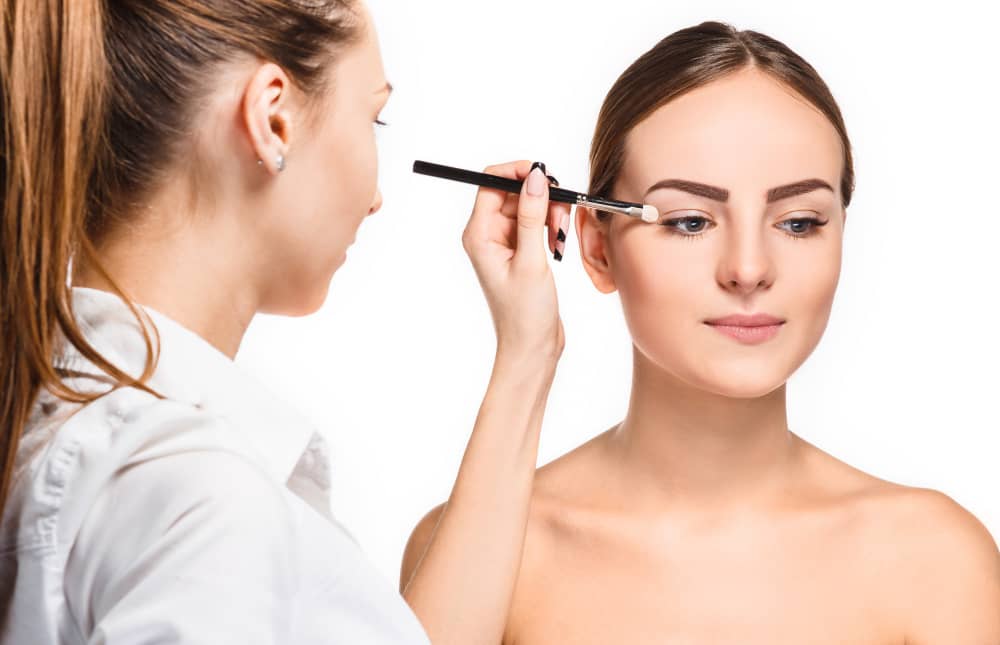
The most frequent eye color on Earth is brown; however, this varies considerably by region. Dark brown eyes are popular across the world in Africa and Asia.
Brown eyes are also quite common in the Middle East. Brown eyes are more prevalent and varied in hue throughout Europe than elsewhere.
According to recent polls, 41% of the population in the United States has brown eyes, with dark, light, and honey-brown variants among them.
The rate rises even more if you include hazel (sometimes known as hazel brown) eyes.
Brown eyesight can vary significantly from person to person, but it does not imply that all brown eyes are the same.
Brown eyes may differ considerably in appearance (even within a single hue) from one individual to another.
What Causes Brown Eyes?
Despite the fact that there are numerous eye colors, such as unusual blue eyes and green eyes, there is only one kind of pigment in the eyes.
The color of your eyes is determined by the amount of melanin in your eyes Iris.
Blue eyes have little melanin in the iris. Eyes that are green, hazel, or light brown contain somewhat more melanin. Brown eyes have a lot of melanin.
Eye color is determined by heredity. However, assessing eye color from your family tree is more difficult than it appears.
There’s evidence that as many as 16 genes may influence eye color.
The eyes of a newborn may be of any color, including different colors from those of their parents. The color of eyes in newborns is unknown because of genetic complexities and interactions.
The majority of Caucasian newborn babies’ eyes do not have much melanin at birth, and they appear blue for the first few months.
However, by 12 to 18 months, more melanin may accumulate in the iris, turning eye color from blue to green, hazel, or brown.

What are the Benefits of Having Brown Eyes?
Brown eyes, as the name implies, have been linked to some health benefits. Individuals with brown eyes may be less prone to certain illnesses.
People with brown eyes are thought to be less likely than those with light-colored eyes to develop age-related macular degeneration.
Brown eyes also have a decreased risk of type 1 diabetes and melanoma of the eye compared to individuals with light blue eyes.
According to research at the National Hospital for Neurology and Neurosurgery in London, brown-eyed people have a lower risk of hearing problems caused by environmental noise pollution than those with blue eyes.
The researchers believe melanin pigment protects nerves in the brain from noise-induced damage. However, it’s not all good news for people with brown eyes.
According to the University of Pittsburgh’s study, women with dark-colored eyes were found to feel more pain when giving birth than those with light-colored eyes.
The women with light-colored eyes had less anxiety, sadness, harmful ideas, and sleep problems than those with brown eyes.
In addition, Australian researchers discovered that individuals with dark brown eyes were more likely to develop cataracts than those with light-colored eyes.
If you have brown eyes, use sunglasses that shield your eyes from UV radiation while outdoors.
Are Brown Eyes more Trustworthy?
Did you know that having brown eyes is associated with being more trustworthy?
University students in the Czech Republic were asked to evaluate 80 classmates (40 males and 40 females, ages 19 to 26 years) for trustworthiness in a study conducted by researchers at Charles University.
Participants were asked to rate the photographed students on a ten-point scale for trustworthiness.
The participants were instructed to assume neutral, non-smiling poses and not to apply makeup or jewelry.
All photographs were trimmed, so the eyes were always the same height, with a basic neck length visible.
Only pictures of individuals with blue or brown eyes were utilized in the study.
The study revealed a link between eye color and face form and the importance of a person’s face shape in assessing trustworthiness.
Below are some reasons why many people find dark brown eyes attractive.
Brown-eyed people have:
- Relatively bigger eyes.
- A rounder and broader chin.
- Eyebrows that were closer to each other.
- A broader mouth with upward-pointing corners.
Brown-eyed people are seen as more trustworthy than blue-eyed ones, according to the study’s authors.
But it isn’t brown eyes that cause this perception,” they add. It’s not due to their eyes or anything.”

What If You want a Rarer Eye Color?
Despite the benefits of having brown eyes, you may want to experiment with other eye colors.
Color contact lenses are available in a wide range of colors that can be used to transform your brown eyes. If you want to change dark brown eyes to light blue, there are colored contacts available.
These contact lenses are also well-suited for people who don’t require correction for nearsightedness, farsightedness, or astigmatism.
Are you wondering how to make your brown eyes “pop”?
If you wear glasses, inquire about how different frame colors may complement and enhance your brown eyes from your optician.
Choose lenses that have an anti-reflective coating to help showcase your eye color.
AR coating on your eyeglasses prevents unsightly reflections, allowing people to see the beauty and expressiveness of your brown eyes.
Why are dark brown eyes good?
They do not change color more often.
Is dark brown eye color common?
Yes. Most people have dark brown eyes, which are said to be less attractive.
In a nutshell, you might also want to consult with a professional aesthetician to discover the best eyeshadow and makeup for brown eyes.
The right choices for you will depend on several factors, including your hair color and skin tone, as well as the depth of the pigment in your brown eyes.
Source: https://www.mindbodygreen.com/articles/science-behind-why-we-find-certain-eye-colors-so-attractive






